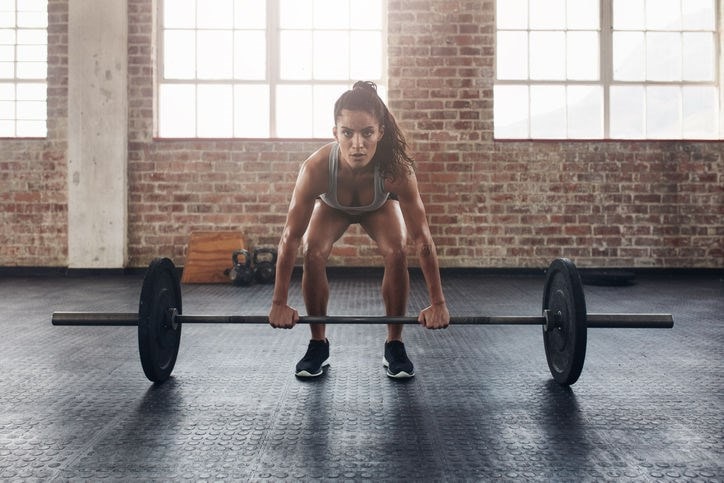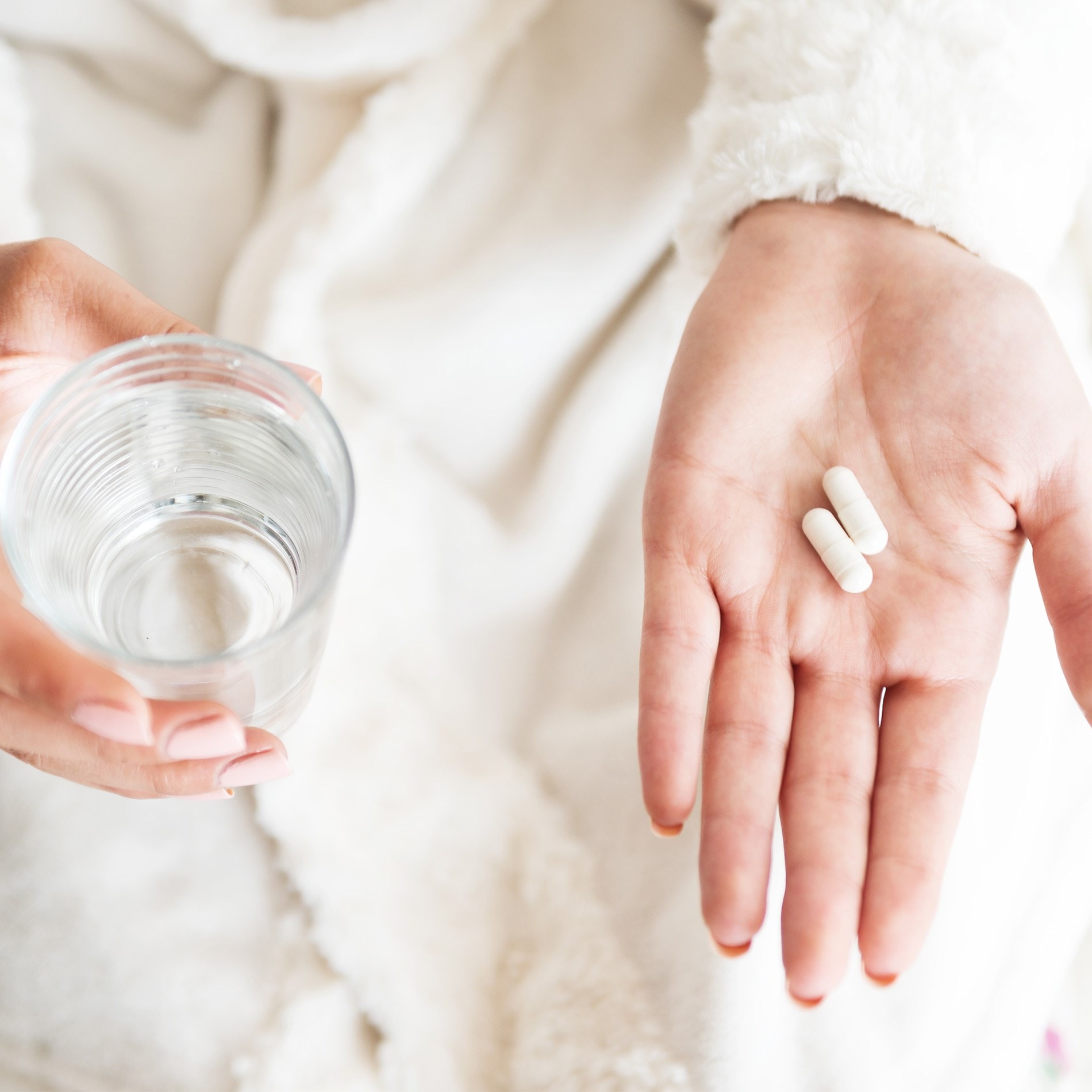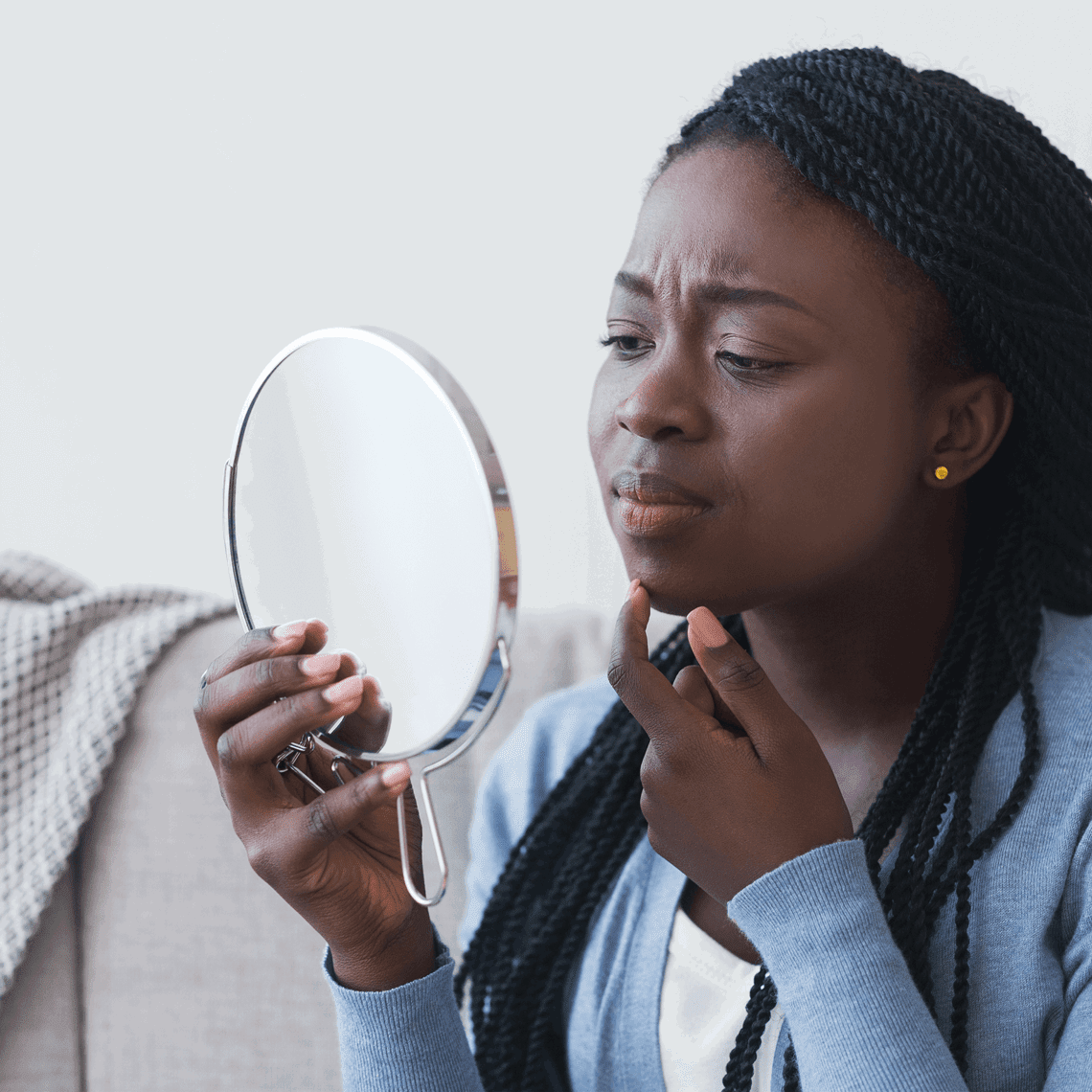Probiotics for Athletes
We know how important a healthy gut is for our overall health, but could the tiny bacteria in our gut affect our sports performance and recovery? If so, what can we do to influence them?
I have teamed up with our resident sports nutritionist Sam to provide some insights into how probiotics may be a clever addition to any sports or fitness regime. I asked Sam for his advice on these three key areas:
- Do probiotics help build muscle, and how?
- Do probiotics help improve low energy levels?
- What are the best probiotics for athletes, and why?
Also within this article:
- Gut health and athletic performance
- Do probiotics help build muscle?
- Do probiotics help with energy?
- Should athletes take probiotics?
- Mental health in athletes
- Best probiotics for athletes
- Summary
But firstly, let’s take a look at the research and find out whether the gut bacteria of athletes differs from the gut bacteria of non-athletes...
Gut health and athletic performance
Jonathan Scheiman, PhD wanted to explore whether the microbiome (the collective term for all the microbes inhabiting our gut) of an elite athlete could one day be replicated via the use of targeted probiotic supplements, and transferred to non-athletes. In his words, he wondered: "Can you extract Michael Jordan’s biology and give it to others to help make the next Michael Jordan?"1
As a first step towards identifying bacteria that might support athletic performance, Scheiman and his researchers collected faecal samples every day from 20 athletes that were training for the Boston marathon. They did this for two weeks, starting from a week before the race, and continuing until a week after the event had taken place. When they compared the pre-race and the post-race samples they found a sudden and dramatic spike in a population of one particular type of bacteria in the post-race samples.
The type of bacteria that rose in number was a certain strain that breaks down lactic acid (an acid that builds up in muscles during prolonged exercise leading to the dreaded muscle fatigue). Having isolated this bacteria, the researchers are now feeding it to mice to measure its effect on lactic acid levels, and therefore muscle fatigue, when transplanted into a different ‘host’. Could the competitive advantage of having less lactic-acid build up during exercise really be taken from one host and transplanted into another?
Scheiman and his team are also analysing the microbiome of ultra-marathon runners, and comparing it to that of athletes from short- burst, high-intensity activities such as rowing. What his team has found so far is that ultra-marathon runners possess a certain type of gut bacteria that helps to break down carbohydrates and fibre. This role could give a crucial ‘edge’ to long-distance athletes, who need to sustain their energy from food over long periods of exercise, and therefore often carb load before an event, including lots of wholegrain foods and slow-release carbohydrates in their diet. This same bacterium was not, however. found in the microbiome of the rowers, or athletes from other short-burst, high-intensity disciplines, who are less reliant on accessing all potential energy sources from their food.
Although there have been relatively few studies looking at the impact of gut health on athletic performance to date, those few that have been done often conclude that athletes have a great diversity of microbes in the gut than non-athletes.
But how can athletes keep their guts in good order? How can probiotics help with their performance? I asked Sam to answer some of the questions that athletes most want to know about gut health:
Do probiotics help build muscle?
Building muscle is one of the key concerns for most athletes. Sam advises that although building muscle is dependent on correct nutrition and strength training, probiotics have a role to play by helping with protein absorption and aiding digestion.

Firstly, in order to fully benefit from dietary protein, it is essential that it is broken down properly, only then can it be absorbed in the small intestines and put to use in the body. Male and female athletes sometimes consume a huge amount of protein in one meal. Some research2 suggests that probiotic supplements can be an effective way of enhancing the body's absorption of vitamins and nutrients into the bloodstream. In a 2018 review3 of clinical trials looking at the influence of probiotics on protein digestion, Wang et al. concluded that probiotics have been shown to increase protein breakdown and absorption.
Furthermore, probiotics help the body to produce digestive enzymes that digest proteins that may otherwise be tough to break down and absorb. Athletes (or us novices) could gain more from protein powders, shakes and bars by improving protein absorption, using probiotics.
The soil-based probiotic strain B. coagulans GBI-30, 6086 is directly involved in the digestion and utilisation of protein. We see this strain being added to protein powders and bars as it has been shown to increase protein absorption and to maximize the health benefits associated with protein supplementation 4. These supplements are designed to be taken after a workout to help build muscle.
Many mainstream protein shakes and powders that are made from whey are known to cause symptoms of gastrointestinal discomfort such as gas, bloating and diarrhoea. This is often due to intolerances to ingredients, or the sudden increase of fibre levels. Taking a probiotic will boost the friendly bacteria in our gut which can help promote more comfortable digestion and absorption of the protein. Lactobacillus acidophilus NCFM® is the most clinically researched strain of acidophilus and has been shown to reduce occasional abdominal pain, bloating5 and diarrhoea6. Health professionals can read more about this strain on the Probiotics Database: Lactobacillus acidophilus NCFM®.
Do probiotics help with energy?
Studies show that probiotics especially those from the Bifidobacteria and Lactobacilli genera can produce B vitamins7 which are essential to energy production. Find out more about how bacteria are classified in this article: Are all probiotics the same?
It’s important to note that not all probiotics produce the same nutrients, each species and strain will offera different benefit so it is hard to say which is the best probiotic for energy. Lactobacillus reuteri CRL1098 has been shown to be particularly helpful for producing b127, we know that B12 is particularly important for energy production due to its involvement in red blood cell production. Lactobacillus rhamnosus GG® is able to synthetize B1, B2 and B98 on its own. Health professionals can read more about this strain on the Probiotics Database: Lactobacillus rhamnosus GG®
As all B vitamins are needed for energy production, it is safe to say that taking a probiotic which also aids vitamin and mineral absorption, will help support energy levels.
Should athletes take probiotics?
Sam explained that long-distance runners and cyclists seem to be especially prone to colds, URTI’s9or digestive issues10. Due to their long and strenuous training schedules, athletes like marathon runners are at a far greater risk of immune suppression than their less active counterparts. Whilst a certain level of exercise is beneficial in supporting immunity, too much can be a stress to the immune system. This leaves athletes at a far greater risk of picking up bacterial and viral infections, which can be very costly to their training schedules and chances in competition. So, what are some of the top probiotics for athletes?
Well, increasing evidence supports the idea that maintaining a healthy balance of beneficial bacteria in the microbiome can support immunity11 leading to fewer illnesses and keeping the body at its best. Furthermore, certain probiotic strains like Bifidobacterium lactis Bl-04® and Bifidobacterium lactis Bi-07® have shown to reduce the risk for getting infections and positively influencing immune responses in multiple clinical trials. Health professionals can read about the studies on the Probiotics Database here: Bifidobacterium lactis Bi-07® and Bifidobacterium lactis Bl-04®.
There is research to support the idea that athletes are more susceptible to leaky gut, this is where the intestinal lining becomes porous or ‘leaky’. This may be due to the increased stress on the body12 and altered blood flow away from the gut towards working muscles. Probiotics can help here, as they have been shown to improve intestinal lining function in athletes13. Health professionals can visit the Professionals site to read more about leaky gut.
It’s common for athletes to experience some form of IBS, again due to the fact that extreme exercise is considered to be a physical stressor, causing blood flow to be redirected and a decrease in digestive activity14. For elite runners, diarrhoea seems to be the most common digestive complaint. The strain Saccharomyces boulardii has been shown to be helpful at improving occasional diarrhoea-related symptoms15. Health professionals can read about this strain on our Probiotics Database: Saccharomyces boulardii
Uncomfortable bloating is common in professional bodybuilders due to the intake of excess calories to avoid weight loss. For these athletes, adding in a probiotic supplement containing Lactobacillus acidophilus NCFM® can prove helpful for digestive issues, this strain has also has a positive effect on immune responses16.
Sam points out that probiotics may not directly influence the performance of athletes, but they are hugely important for supporting indirectly. Taking probiotics to help prevent illness and protect against the symptoms of overtraining or digestive complaints can be hugely influential on an athlete’s career.
Mental health in athletes
The rise of sports psychology as a discipline is indicative of the integral role the mind plays in the health and success of athletes. Mental health disorders are prevalent amongst sportspeople, as demonstrated by an Australian study17, where almost 50% of athletes studied were experiencing at least one kind of mental disorder, including depression, anxiety and eating disorders. However, there is much stigma surrounding discussions about mental health amongst elite athletes, because sports, by its very nature, is so competitive, and there is a huge focus on maintaining ‘mental toughness’. Therefore, it can be viewed as a weakness to admit to having mental health problems.
However, mental health often manifests itself in physical symptoms, such as lethargy, nausea/vomiting, and even gastrointestinal dysfunction in the form of IBD18 (healthcare practitioners can see more information about IBD on the Professionals site). Therefore, it is imperative that athletes look after their mental health as well as physical health, because the two are thought to be very closely linked. See more about the gut-brain axis.
Best probiotics for athletes
The top probiotic for you personally will depend on your own health and fitness goals. Different strains will suit different situations so pick the probiotic with research behind it to help support your needs. You can read more about this here: The Cure-All Myth
Saying that, if you are looking for a good all-rounder, choose a product that contains the strain Lactobacillus acidophilus NCFM® to support immunity, aid digestion and support energy levels.
Research published in the Journal of Science and Medicine in Sport has indicated that daily supplementation with a probiotic may be of benefit to highly trained rugby players19. This study was carried out on 30 high level rugby union players, and looked at duration and severity of infections amongst the elite union rugby players.
Results were positive for the probiotic supplement group. 14 of the 30 participating rugby players supplementing with a probiotic experienced neither a respiratory tract nor gastrointestinal infection during the 4 week trial period. This compared to only 6 of the 30 who were taking the placebo supplementation. The difference in severity of symptoms between the two treatment groups held no significance.
Summary
This article highlights that whether you are a pro bodybuilder, elite runner, or a gym novice, supporting gut health and adding probiotics to your fitness regime could have a positive effect. To summarise the key points:
- Protein digestion and absorption can be aided by probiotics
- Different strains produce different B vitamins for energy
- All probiotics increase net absorption of vitamins, minerals, and nutrients
- Athletes suffer from lowered immunity, supporting your microbiome supports immunity
- Digestive issues are common among sportspeople, probiotics can support these
This blog was written by Camilla Gray Nutritional Therapist Dip CNM in collaboration with Sam Andrews Sports Nutritionist.
You may also be interested in:
Gut Flora & Cardiovascular Fitness
Probiotics for Men
References
- No guts no glory: Harvesting the microbiome of athletes - American Chemical Society. Accessed December 3, 2020. https://www.acs.org/content/acs/en/pressroom/newsreleases/2017/august/no-guts-no-glory-harvesting-the-microbiome-of-athletes.html
- Sheridan PO, Bindels LB, Saulnier DM, et al. Can prebiotics and probiotics improve therapeutic outcomes for undernourished individuals? Gut Microbes. 2013;5(1). doi:10.4161/gmic.27252
- Wang J, Ji H. Influence of Probiotics on Dietary Protein Digestion and Utilization in the Gastrointestinal Tract. Curr Protein Pept Sci. 2018;20(2):125-131. doi:10.2174/1389203719666180517100339
- Jäger R, Purpura M, Farmer S, Cash HA, Keller D. Probiotic Bacillus coagulans GBI-30, 6086 Improves Protein Absorption and Utilization. doi:10.1007/s12602-017-9354-y
- Distrutti E, Monaldi L, Ricci P, Fiorucci S. Gut microbiota role in irritable bowel syndrome: New therapeutic strategies. World J Gastroenterol. 2016;22(7):2219-2241. doi:10.3748/wjg.v22.i7.2219
- Heiser CR, Ernst JA, Barrett JT, French N, Schutz M, Dube MP. Probiotics , soluble fiber , and L-Glutamine ( GLN ) reduce nelfinavir ( NFV ) - or lopinavir / ritonavir ( LPV / r ) -related diarrhea. Jiapac. 2004;3(4):121-129.
- LeBlanc JG, Milani C, de Giori GS, Sesma F, van Sinderen D, Ventura M. Bacteria as vitamin suppliers to their host: A gut microbiota perspective. Curr Opin Biotechnol. 2013;24(2):160-168. doi:10.1016/j.copbio.2012.08.005
- LeBlanc JG, Chain F, Martín R, Bermúdez-Humarán LG, Courau S, Langella P. Beneficial effects on host energy metabolism of short-chain fatty acids and vitamins produced by commensal and probiotic bacteria. Microb Cell Fact. 2017;16(1):79. doi:10.1186/s12934-017-0691-z
- Gleeson M, Bishop N, Oliveira M, Tauler P. Influence of training load on upper respiratory tract infection incidence and antigen-stimulated cytokine production. Scand J Med Sci Sport. 2013;23(4):451-457. doi:10.1111/j.1600-0838.2011.01422.x
- Pugh JN, Sparks AS, Doran DA, et al. Four weeks of probiotic supplementation reduces GI symptoms during a marathon race. Eur J Appl Physiol. 2019;119(3):1491-1501. doi:10.1007/s00421-019-04136-3
- OHASHI Y, USHIDA K. Health-beneficial effects of probiotics: Its mode of action. Anim Sci J. 2009;80(4):361-371. doi:10.1111/j.1740-0929.2009.00645.x
- Lambert GP. Stress-induced gastrointestinal barrier dysfunction and its inflammatory effects. J Anim Sci. 2009;87(14 Suppl):101-108. doi:10.2527/jas.2008-1339
- Lamprecht M, Bogner S, Schippinger G, et al. Probiotic Supplementation Affects Markers of Intestinal Barrier, Oxidation, and Inflammation in Trained Men; a Randomized, Double-Blinded, Placebo-Controlled Trial.; 2012. doi:10.1186/1550-2783-9-45
- Costa RJS, Snipe RMJ, Kitic CM, Gibson PR. Systematic review: exercise-induced gastrointestinal syndrome—implications for health and intestinal disease. Aliment Pharmacol Ther. 2017;46(3):246-265. doi:10.1111/apt.14157
- McFarland L V. Systematic review and meta-analysis of saccharomyces boulardii in adult patients. World J Gastroenterol. 2010;16(18):2202-2222. doi:10.3748/wjg.v16.i18.2202
- Paineau D, Carcano D, Leyer G, et al. Effects of seven potential probiotic strains on specific immune responses in healthy adults: A double-blind, randomized, controlled trial. FEMS Immunol Med Microbiol. 2008;53(1):107-113. doi:10.1111/j.1574-695X.2008.00413.x
- Gulliver A, Griffiths KM, Mackinnon A, Batterham PJ, Stanimirovic R. The mental health of Australian elite athletes. J Sci Med Sport. 2015;18(3):255-261. doi:10.1016/j.jsams.2014.04.006
- Bannaga AS, Selinger CP. Inflammatory bowel disease and anxiety: links, risks, and challenges faced. Clin Exp Gastroenterol. 2015;8:111-117. doi:10.2147/CEG.S57982
- Haywood BA, Black KE, Baker D, McGarvey J, Healey P & Brown RC (2013). Probiotic Supplementation reduces the duration and incidence of infections but not severity in elite rugby union players. Journal of Science and Medicine in Sport, 2013 Aug 30.
- Cheng, Y.‐C. , Lee, C.‐C. , Lee, M.‐C. , Hsu, H.‐Y. , Lin, J.‐S. , Huang, C.‐C. , & Watanabe, K. (2023). Effects of heat‐killed Lactiplantibacillus plantarum TWK10 on exercise performance, fatigue, and muscle growth in healthy male adults. Physiological Reports, 11, e15835. 10.14814/phy2.15835
Popular Articles
View all General Health articles-
General Health12 Jan 2024
-
General Health13 Feb 2024
-
General Health15 Apr 2024


